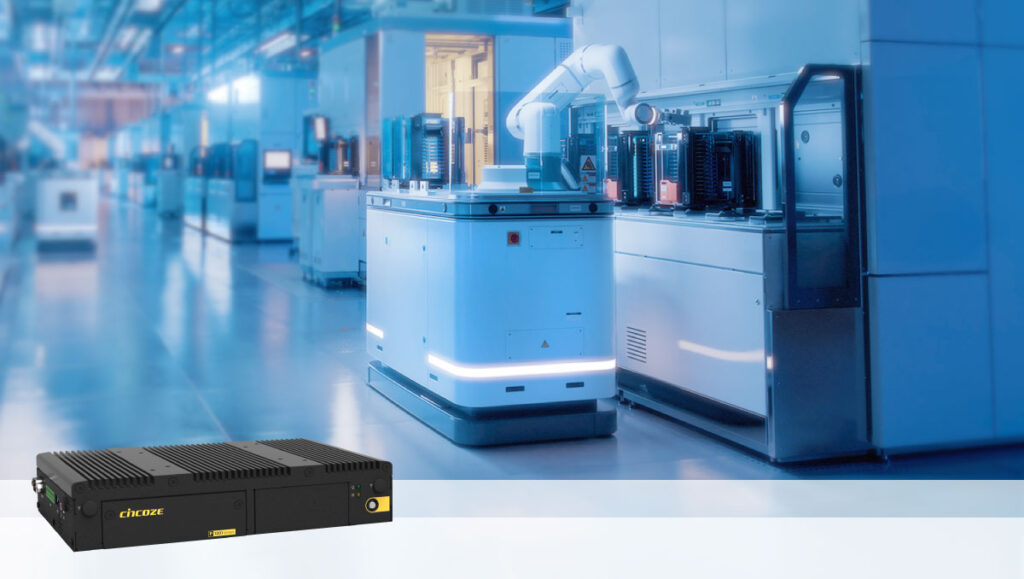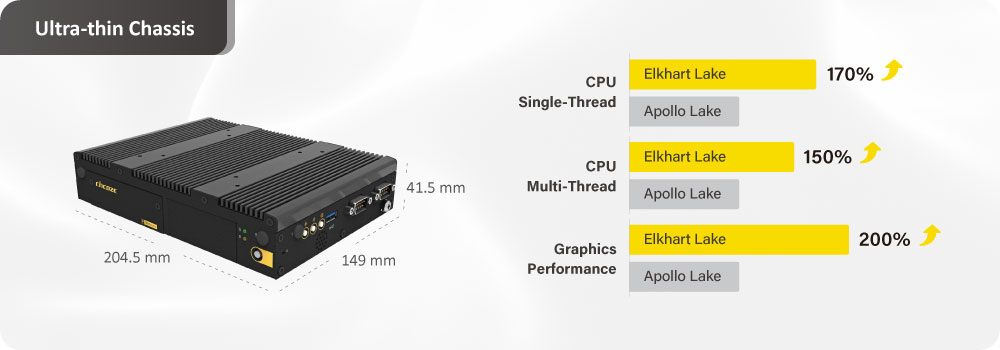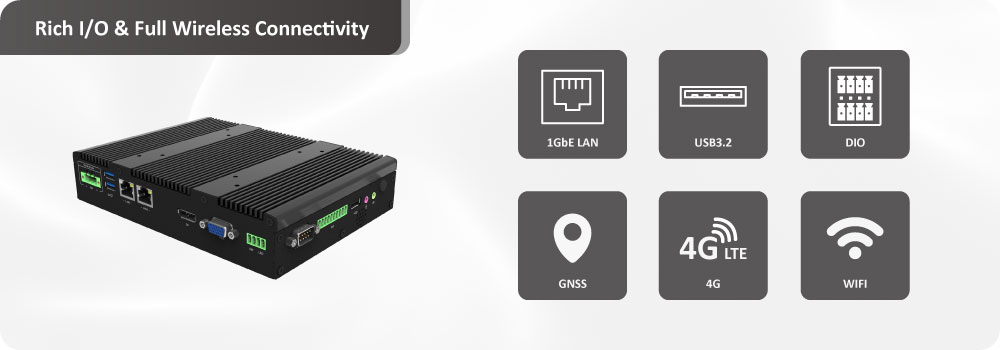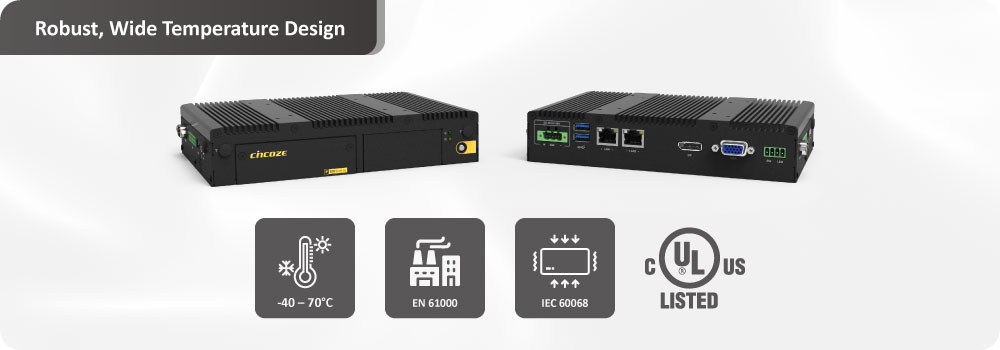ASIA ELECTRONICS INDUSTRYYOUR WINDOW TO SMART MANUFACTURING
Cincoze Pitches Embedded Computer as AMR Core
Cincoze promotes the P1201 slim embedded computer featuring its compact size, excellent performance, and rich I/O for autonomous mobile robots (AMRs).
AMRs, which combine autonomous positioning and navigation, are a type of trackless unmanned mobile robots. Their advantage lies in their ability to replace manual labor to enter and exit high-risk environments. This reduces personnel risks and ensures continuous and uninterrupted operation, significantly improving efficiency and reducing labor costs.

The Cincoze P1201 slim embedded computer, with its compact size, excellent performance, and rich I/O, has become the preferred core computer for AMR applications. Moreover, it has become a highly sought-after AMR exclusive model in the AMR market within just half a year of its launch.
Slim Design and Power Saving
As a slim embedded computer, P1201 has a compact size of only 204.5×149×41.5 mm, making it ideal for installation in the limited space in an AMR. Performance-wise, it has the Intel® Atom® x6425E quad-core processor (Elkhart Lake platform). Compared with the previous generation platform (Apollo Lake), the single-core performance is increased by up to 1.7 times, and the multi-core performance is increased by 1.5 times. It also supports up to 32GB of 3200MHz DDR4 memory. Featuring a low power consumption of only 6 or 12W (TDP), it effectively reduces the time AMRs spend charging, and improves production efficiency and productivity.

Rich I/O and Support for Wireless Modules
Mostly, AMRs rely on cameras and LiDAR to sense the surroundings and achieve autonomous control and route planning. In relation, having a rich set of I/O interfaces is important. Besides the native I/O ports (1GbE LAN, USB 3.2, COM, and DIO), it also supports expansion modules to add features, such as PoE, to meet the diverse application needs of different industries.
Moreover, wireless is indispensable for AMRs. So,P1201 provides an M.2 key E slot, which supports Wi-Fi 6 / Intel CNVi / Bluetooth module to achieve high-speed data transmission, and a Mini PCIe slot that supports a GNSS/4G module. Hence, these slots facilitate communication between AMRs and enable real-time information access for monitoring personnel.

Diverse Certifications for Safety and Reliability
The stable and continuous operation of AMRs is of utmost importance. Specifically, high levels of vibration resistance and electromagnetic compatibility are crucial tests for the computer. P1201, in addition to having wide temperature support (-40°C – 70°C), has also passed various vibration and shock tests. These include random vibration (5G), sinusoidal vibration (1G), and shock resistance (50G). Also, it complies with stringent EMC testing standards for harsh industrial environments (EN 61000-6-2 and EN 61000-6-4). To ensure its high degree of safety, it has also obtained the UL safety certification, eliminating safety concerns such as electrical leakage, flammable materials, and enclosure robustness. This ensures P1201 meets high-level industrial-grade protection standards, guaranteeing safe, and reliable operation in extreme conditions.





